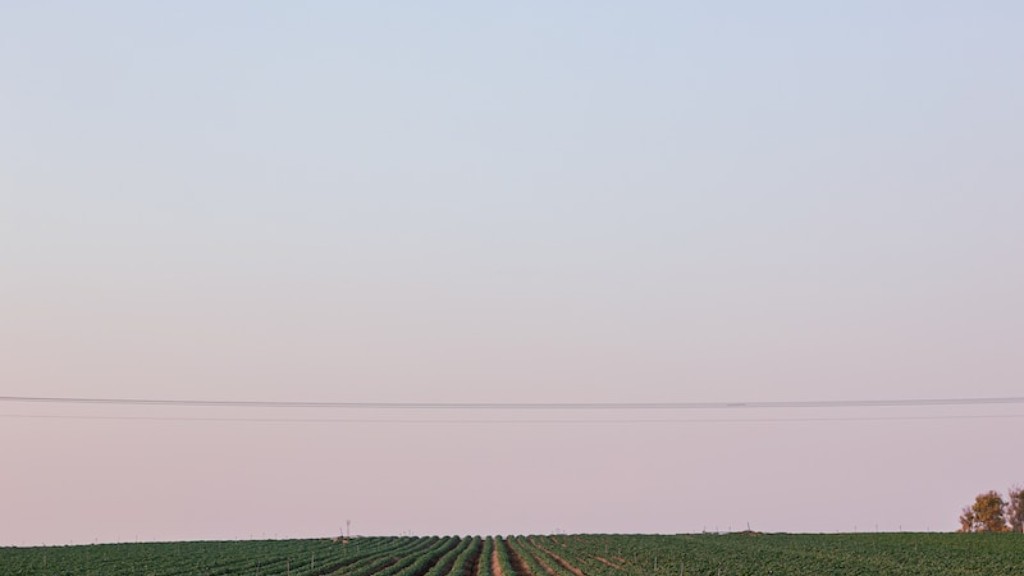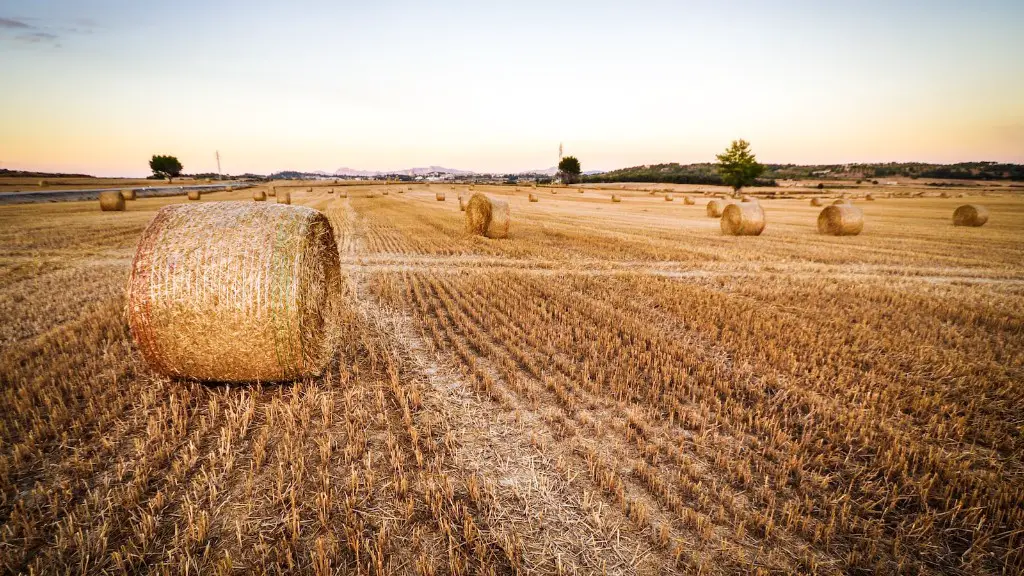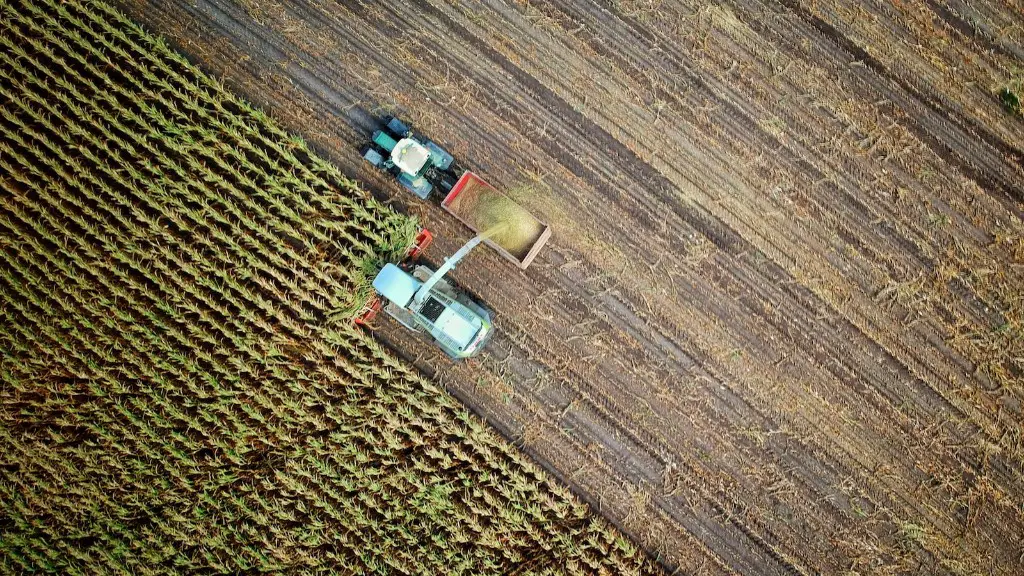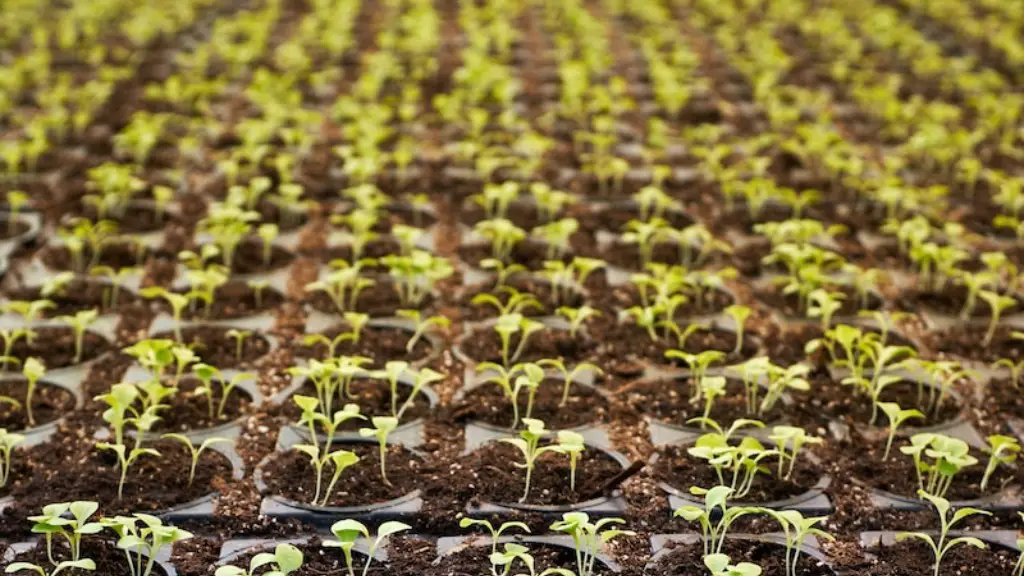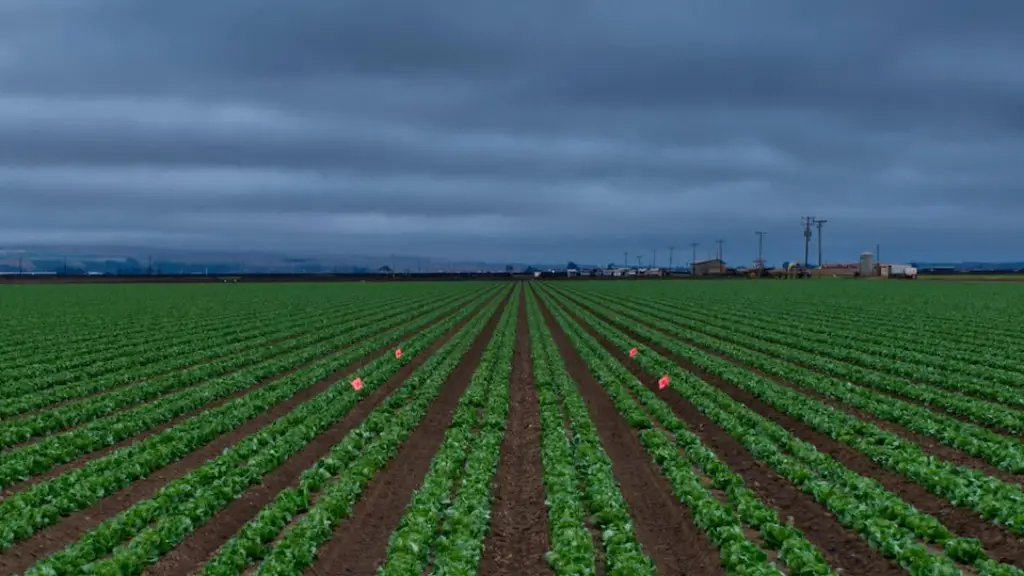The development of agriculture allowed for the domestication of plants and animals, which led to a sedentary lifestyle and an increased dependence on a limited number of food sources. This change in lifestyle had a profound impact on the health of early agriculturalists. The sedentary lifestyle and increased dependence on a limited number of food sources led to a decrease in physical activity and an increase in chronic diseases such as obesity and type 2 diabetes. In addition, the increased dependence on a limited number of food sources made early agriculturalists more susceptible to famine and infection.
The development of agriculture has had a profound effect on people’s health. Agriculture allowed for the domestication of plants and animals, which led to the development of settled civilizations and the growth of cities. This in turn led to improved sanitation and public health measures, which greatly reduced the incidence of disease. Agriculture also allowed for the development of new and improved medical technologies, which have greatly improved the health of people around the world.
How did the development of agriculture affect humans?
Agriculture has been a key driver of human civilization and population growth. By allowing us to farm crops and animals to meet demand, agriculture has helped support the growth of cities and civilizations. Today, the global population is more than seven billion people, thanks in large part to agriculture.
The skeletal analysis of early agricultural communities suggests that the transition to agriculture had an overall negative impact on human oral health. The increased incidence of infectious disease and nutritional deficiencies contributed to an overall reduction in human stature.
Did agriculture contribute to poorer human health
The negative health outcomes from agricultural practices and food systems are many and varied. They include undernutrition, overnutrition, cancer, fertility, and digestive diseases, to name just a few. While some of these health problems are caused by specific chemicals or other agents in the environment, others are due to the overall structure of the food system itself. For example, the way food is produced, distributed, and consumed can have a profound impact on our health.
Agriculture has had a profound effect on human living circumstances. By promoting sedentism and population growth, it has led to increased crowding and the accumulation of waste. This, in turn, has created conditions that are conducive to the spread and maintenance of infectious diseases.
Was the development of agriculture good for humans?
The agricultural revolution was a time of great change for humans. For the first time, people were able to produce more food than they could actually eat. The extra food provided by agriculture meant that some people did not have to spend their time gathering food. This led to a number of other changes, including the development of cities and the rise of civilizations.
Farmers and farm workers are exposed to a variety of potential hazards that can lead to respiratory diseases, noise-induced hearing loss, skin disorders, certain cancers, chemical toxicity, and heat-related illnesses. However, there are precautions that can be taken to minimize or eliminate these potential hazards.
Some of the potential hazards that farmers and farm workers are exposed to include:
-Pesticides
-Herbicides
-Fungicides
-Insecticides
-Dust
-Mold
-Fumes
-Gases
Each of these potential hazards can lead to different health problems. For example, pesticides can lead to respiratory problems, while herbicides can lead to skin problems.
There are a variety of precautions that can be taken to minimize or eliminate these potential hazards. For example, wearing proper protective gear, such as a mask and gloves, can help to reduce exposure to harmful chemicals. In addition, using less toxic chemicals can also help to reduce the risks of health problems.
What are two negative effects of agriculture?
While agriculture can have negative impacts on the environment, it can also have positive impacts. For instance, agriculture can trap greenhouse gases within crops and soils, or mitigate flood risks through the adoption of certain farming practices. By taking steps to reduce the negative impacts of agriculture, we can help to protect the environment.
Agriculture has had a profound effect on the environment. Five of the most significant effects are soil fertility loss, eutrophication of water bodies, deforestation, climate change and pesticide pollution.
Soil fertility loss occurs when the nutrients in the soil are depleted faster than they can be replaced. This can happen through farming practices that strip the soil of nutrients, or through the leaching of nutrients into water bodies.
Eutrophication of water bodies occurs when there is an overabundance of nutrients in the water. This can come from agricultural runoff, which can contain fertilizer, animal waste, and other pollutants.
Deforestation occurs when trees are cleared for agricultural land. This can have a number of negative consequences, including climate change, loss of habitat for wildlife, and soil erosion.
Climate change is caused by the release of greenhouse gases into the atmosphere. Agriculture contributes to this problem through deforestation, animal husbandry, and the use of fossil fuels.
Pesticide pollution occurs when pesticides used in agriculture contaminate the air, water, and soil. This can have negative effects on the environment and on human health.
What are 3 problems of agriculture
Setting the table to address the triple challenge means addressing all three challenges together instead of separately. Trying to tackle only one challenge will not be sustainable in the long run because the other two challenges will still exist. For example, if we only focus on increasing food production, we will still need to find a way to provide a livelihood for farmers and protect the environment.
Climate change, soil erosion, and biodiversity loss are all major problems that the agricultural industry faces. However, there are many ways to cope with these problems. One way is to invest in farm productivity. This can help meet the rising demand for more food of higher quality. Another way to cope with these problems is to satisfy consumers’ changing tastes and expectations. This can be done by offering a variety of products that meet their needs.
What are 3 impacts from the Agricultural Revolution?
The agricultural revolution had a number of consequences for humans. It has been linked to everything from societal inequality—a result of humans’ increased dependence on the land and fears of scarcity—to a decline in nutrition and a rise in infectious diseases contracted from domesticated animals.
Farming allowed for the domestication of plants and animals, which led to the development of cities and civilizations. However, this also led to the development of deep class divisions between those who had access to land and resources, and those who did not. Hunter-gatherers, who did not have access to these concentrated food sources, were at a disadvantage, and often suffered from malnutrition, starvation, and epidemic diseases.
One of the societal effects of agricultural practices is changing diets. The type of food that people eat depends on what is available, and what is grown affects what is available. Another societal effect of agricultural practices is the role of women in agricultural production. In many cultures, women are responsible for the majority of the agricultural work, including planting, harvesting, and preparing food. The last societal effect of agricultural practices is the economic purpose. Agricultural practices can be a source of income for individuals and families, but they can also be a source of food security for a community or country.
Agriculture is the backbone of many economies and the loss of agricultural land can have devastating effects. Erosion and manmade factors such as deforestation and urbanization are the main causes of agricultural land loss. This loss of land reduces the amount of land available for cultivation and puts pressure on the existing land. The other big problem facing agriculture is the lack of crop diversity. This lack of diversity makes crops more vulnerable to pests and diseases and decreases the overall yield. It also reduces the options farmers have for selling their crops.
What are 3 reasons why agriculture is important?
1. Agriculture is the main source of raw materials for industries.
2. Agriculture is important to international trade.
3. Agriculture plays a big role in a nation’s revenue.
4. Agriculture provides employment.
5. Agriculture is crucial to a country’s development.
6. Agriculture can help heal the environment.
7. Agriculture goes hand-in-hand with war.
8. Agriculture is a key sector in the economy.
9. Agriculture is essential to human survival.
10. Agriculture is important for food security.
The Agricultural sector is a large contributor to many environmental problems that cause environmental degradation. These include climate change, deforestation, biodiversity loss, dead zones, genetic engineering, irrigation problems, pollutants, soil degradation, and waste. The Agricultural sector needs to take responsibility for these issues and take steps to mitigate them.
Why do you think agriculture is important to us
Agriculture has been a mainstay of human society since the dawn of civilization. It provides most of the world’s food and fabrics, and has been responsible for the development of various civilizations. Cotton, wool, and leather are all agricultural products, and agriculture also provides wood for construction and paper products. These products, as well as the agricultural methods used, may vary from one part of the world to another.
Agriculture is a vital sector of the economy and its importance cannot be understated. As the provider of food, it forms the foundation of human existence. Additionally, as a source of industrial raw materials, agriculture plays a significant role in promoting economic activity across all sectors.
In order to maximize its impact on economic growth and development, agriculture must be supported through government policies and investments. This will ensure that the sector remains strong and continues to make vital contributions to the economy.
Warp Up
The development of agriculture allowed people to settledown and live in one place which lead to better nutrition andhealth. With a more stable food supply, people were able to stayhealthy and live longer.
The development of agriculture has had a profound effect on people’s health. Agriculture allowed for the domestication of plants and animals, which led to a more sedentary lifestyle and improved diets. This in turn led to better health and increased lifespan. Agriculture also allowed for the implementation of sanitation and hygiene practices, which further improved health.
